I really want to get excited about Lumia 800 Windows Phone, but...
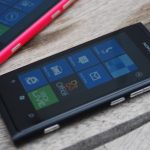
Nokia makes it damn hard. No US distribution this year. (Europe? With the Euro zone in state of collapse?) No front-facing camera -- long a standard feature on Nokia handsets -- and, hells bells, Microsoft now owns Skype. Surely that makes front-facing camera selling in Europe, Nokia's and Skype's home turf, required equipment. The phone maker announced the Lumia 800, and lower-cost Lumia 710, today at Nokia World.
I'm a longstanding Nokia enthusiast -- a rare-breed in the United States and particularly among journalists, many of whom trumpet for iPhone. I've owned two different N95s, E71, N79, N97 and N900, among other Nokia handsets -- and loved them all, even with their quirks. But in January 2011, I opined: "Confessions of a former Nokia enthusiast", writing "I love Nokia, but Nokia doesn't love me". I'm still not feeling the love, and perhaps I set expectations too high. A few weeks back I thought of writing a post titled something like: "Will the hottest phone this holiday come from Nokia and not Apple". Good thing, I didn't.
It's the 'Five Reasons to Quit Windows XP' contest

Eleventh in a series. Our celebration of Windows XP's 10th anniversary continues with a contest! You give us reasons to quit XP for Windows 7, and we could give you a prize. Right now we've got five Microsoft mice to give away. But I'm hoping that some other Microsoft group will see the Entertainment & Devices division's generosity and throw more prizes your way. For a contest like this, a few copies of Window 7 would be appropriate. We thank E&D PR for providing: Arch Mouse (two), Explorer Touch Mouse (two) and Touch Mouse (one).
The rules are simple: Submit your reasons in comments below or (if you want to keep your ideas secret from others) email joe at betanews dot com. You can submit up to five reasons, and we will choose five from all submissions -- more if we add to the prize list. Your reasons must be why give up Windows XP for 7. Sorry, but this is a Linux- and Mac-free contest. Reasons can be serious or funny, but they will need some originality or pizzazz to beat out others. For example, "security is better" won't win anything, unless all the submissions are godawful. But "my mother-in-law is a botnet herder" has potential. Our panel of editors will pick the winners. The contest is open from now until 11:59 pm ET on October 29. We'll announce prize winners the first week of November 2011.
10 years of Windows XP [slideshow]
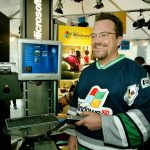
Tenth in a series. Microsoft launched Windows XP on Oct. 25, 2001. By every measure it is the most successful Windows version ever, bringing stability to the platform, too.
Anyone can easily dismiss Windows XP, because it's so overly familiar, having stayed long in market and so seemingly unchanged. But Microsoft accomplished much around the venerable operating system, which quickly became a stable platform for the company, too. In fact, change defined XP during its first half-decade in market, but built on the stable platform beneath. Within three weeks of the launch, Microsoft announced the Tablet PC version and Media Center Edition, then codename "Freestyle", in January 2002.
Happy Birthday! Windows XP turns 10
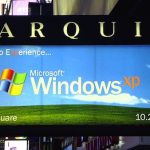
Ninth in a series. Few products have impacted more people than Windows XP. Microsoft officially launched the operating system -- the first for consumers based on the NT kernel -- on Oct. 25, 2001. That's right, 10 years ago today. But PC manufacturers started offering XP systems in early September 2001, a week before terrorist attacks against New York City and Northern Virginia. XP is the most popular Windows version ever released. Even today, depending on the analyst crunching numbers, more people use Windows XP than any other PC operating system (although Windows 7 is nearly tied).
Windows XP is a workhorse. Microsoft kept it in market longer than any other Windows version, allowing a very stable ecosystem of third-party applications and products to evolve around it. The operating system fulfilled the vision set for Windows 95 six years earlier -- release of stable, 32-bit code suitable for businesses and consumers. Microsoft's biggest development challenge: Providing compatibility with games and supporting hardware drivers that wanted access to the kernel, which NT blocked for security reasons.
Tablets and laptops are on a 'collision course'

But you knew that already, right?
Today, DisplaySearch issued the most unusual of tablet forecasts -- one that looks at the totality of the market and takes Windows into consideration. Gartner and IDC use a separate "media tablet" category for Android tablets and iPad, based on the operating system, choosing to classify "Tablet PCs" running Windows as personal computers. DisplaySearch has more sensibly made the designation around processors -- ARM and x86 -- which better defines the market for the future, and isn't the future what a forecast is all about?
Celebrate XP's 10th anniversary -- switch to Windows 7
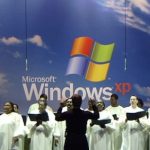
Eighth in a series. This week, the most successful personal computer operating system ever turns 10. Microsoft officially launched Windows XP on Oct. 25, 2001, with a muted New York gala. The Redmond, Wash.-based company tempered planned festivities. The collective American psyche wasn't ready to celebrate much of anything following terrorist attacks the previous month against the World Trade Center and US Pentagon. This week at BetaNews we'll give Windows XP a bit of the festivity it deserved and didn't get a decade ago.
But we'll temper this celebration, too. For all Windows XP's successes, it has been too long in market. Too many of you still use this venerable workhorse, which is testimony to its compatibility, familiarity and utility. But XP is showing its age. In August, F-Secure's Mikko Hypponen wrote for BetaNews: "Do a good deed today, uninstall Windows XP". That's good advice. He observes that the operating system's security simply isn't as good as Windows 7, or even Mac OS X. "Ten years is an eternity in this business. So it's no wonder XP's security architecture is not up to date".
Is 'Hawaii 5-0' one long Microsoft commercial?

Product placement is the ultimate in marketing. It's relatively cheap -- that's assuming the company pays anything at all -- the value worth millions in potential sales and/or savings paying for actual advertising. Why pay for a 30- or 60-second TV commercial when your product can be part of the show? Or on CBS cop drama "Hawaii 5-0" be one of the stars of the show?
I've been pondering writing about Microsoft's product placement since 5-0's first season aired (season two started last month). The program's actors routinely use the company's big-ass table -- that is Surface -- and Bing to search from Windows Phone. But this week, in episode "Ma'ema'e", Windows Live SkyDrive joins the active placement of Microsoft products -- or cast, if you will.
iPhone 4S launches in 22 more countries
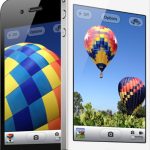
Apple calls iPhone 4S a "worldphone", but the real measure isn't wireless frequency support, but actual availability. The 4S went on sale one week ago in seven countries. Apple added another 22 today and plans 70 countries by end of year. Preorders start today, and phones will be available in stores on October 28.
No global iPhone expansion is more important for Apple than iPhone 4S. On Tuesday, the company offered stunning guidance for calendar fourth quarter: $37 billion in revenue and earnings per share of $9.30. Analyst consensus before Apple issued guidance: $36.63 revenue and $8.98 EPS. Wall Street estimates are now $37.55 billion and $9.45 per share. More typically, Apple has issued conservative guidance with analyst consensus billions ahead, and fourth quarter -- even with holiday sales -- isn't typically one of Apple's strongest. I don't see how the company reaches $37 billion in revenue without bang-up iPhone 3GS (free), iPhone 4 ($99) and iPhone 4S ($199-$399) sales. I'm looking at the numbers for a future post, but for now it looks to me like Apple, and really new CEO Tim Cook, has bet the quarter on iPhone. Distribution will be key to achieving that number.
Microsoft Q1 2012 by the numbers: $17.37B revenue, $5.7B profit

Will slowing PC sales be the end of Microsoft? You'd think so from some recent punditry, boatloads of Apple iOS device sales and consumers buying tablets and smartphones instead of new computers. But, today, after the closing bell, Microsoft showed that it has staying power and shouldn't be written off for dead (although Apple apologists give quarterly epitaphs). The Redmond, Wash.-based company revealed fiscal 2012 first quarter results after the closing bell.
For Q1, ended September 30, Microsoft $17.37 billion, up 7 percent year over year. Operating income: $7.2 billion, a 1 percent increase. Net income rose 6 percent to $5.7 billion, or 68 cents a share. Earnings per share rose by 10 percent year over year.
Want a one-night stand with Windows Phone and a good band?
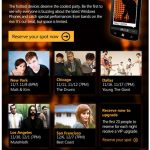
Then stop reading this post and hop on over to the Windows Phone Facebook fan page. Tickets are going fast.
As part of a smart marketing campaign to promote Windows Phone, Microsoft will hold events in five cities -- New York, Chicago, Dallas, Los Angeles and San Francisco in order of occurrence, starting November 7. Performers: Matt & Kim, The Drums, Young The Giant, MutheMouth and Best Coast. Wow, it's a great lineup. I've got music from most of these groups in my digital collection. Ah, if only there was one of these in San Diego. Hey, Microsoft, why not Boston, with its quarter-million population of students this time of year? Surely you won't be run out by iPhone idolaters, if the right group plays there.
AT&T activates 1M iPhone 4S handsets, as Android army advances
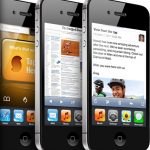
AT&T's third quarter earnings are out, and the big news is iPhone vs everything else. Either iPhone 4S is a huge success or Android, depending on how the numbers are cut -- and really both. Either way, AT&T's churn rate was just 1.1 percent -- on par with the year-ago-quarter -- and signed subscribers are staying despite all that customer grumbling about dropped calls.
The nation's second-largest carrier sold 4.8 million smartphones during Q3 -- or about two-thirds of all "post-paid" handsets. Now more than half -- 52.6 percent -- of AT&T's 68.6 million post-paid subscribers have smartphones -- that's up from 39.1 percent a year ago.
Are iOS 5 and iPhone 4S already outdated?

Do I even need to ask?
Let the debate begin. Google and Samsung delayed their planned Android 4.0 operating system and Galaxy Nexus smartphone launches until today in Hong Kong instead of October 11 in San Diego. They claimed the delay showed respect for Apple cofounder Steve Jobs who died two weeks ago. Some members of the Apple Fanclub of bloggers and journalists insist that reason is a smokescreen for software or hardware problems. Unlikely considering nothing ships until November. Looking at what Google and Samsung unveiled today, the companies had plenty of good reasons to announce before iPhone 4S sales started October 14. It would have been the competitive equivalent of launching a nuclear strike.
Get acquainted with the newest Android -- Ice Cream Sandwich [slideshow]

Today in Hong Kong, Google formally launched Android 4.0 in an event cosponsored by Samsung. The new operating system replaces Android 2.x "Gingerbread" for smartphones and 3.x "Honeycomb" for tablets. During the event Andy Rubin, Android chief, laid out "three defining terms" -- goals -- for new version "Ice Cream Sandwich: "simplicity", "beautiful", "we want to go beyond smart". Android 4.0 looks smart and acts smart, too. Many people will look and remark how suddenly outdated is Apple's iOS 5, which only launched last week.
Ice Cream Sandwich will be available in November on the new Google phone, the Samsung-manufactured Galaxy Nexus. Presumably, Android 4 will soon be (or soon after be) available for stock "with Google" devices, such as Nexus S and Motorola XOOM. Meantime, we thought you'd like a peak at what's coming your way.
Apple Q4 2011 by the numbers: $28.27B revenue, $6.62B profit -- misses Wall Street consensus

Today, after the closing bell, Apple announced another blow-out quarter -- and the first with Tim Cook officially as CEO. The Cupertino, Calif.-based company also closed fiscal 2011. While Wall Street waited with interest for today's results, fiscal Q1 2012 may be more interesting -- Cook's first full quarter as chief executive and when Apple launched iPhone 4S.
The quarter broke a longstanding trend of Apple beating Wall Street's over-inflated estimates, not just revenue and earnings but also for numbers of prominent products shipped. Only Macs exceeded analyst projections among the top-tier products.
CIOs must 're-imagine IT'

Businesses aren't exactly busting open their coffers, but IT spending will rise next year. Gartner predicts a 3.9 percent increase -- to $2.7 trillion, from $2.6 trillion this year. The analyst firm had expected 5.9 percent spending growth for 2011, and that's not happening.
What's important now isn't so much how much is spent but where. Social media, cloud computing and virtualization are disruptive technologies forcing IT departments and business leaders to re-evaluate technology adoption. Then there are the relentless, lingering effects of the global downturn. As such, Gartner claims that more enterprises are making IT a competitive, business priority -- and that affects who makes the decisions and how technology investments fit the top and bottom lines.
Joe's Bio
Joe Wilcox is BetaNews executive editor. His motto: Change the rules. Joe is a former CNET News staff writer, JupiterResearch senior analyst, and Ziff Davis Enterprise Microsoft Watch editor.
Ethics StatementBetaNews, your source for breaking tech news, reviews, and in-depth reporting since 1998.
© 1998-2025 BetaNews, Inc. All Rights Reserved. About Us - Privacy Policy - Cookie Policy - Sitemap.
